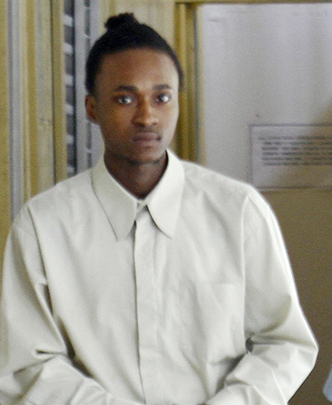After throwing himself at the mercy of the court, having admitted that he had raped two children and a woman, for which he was sentenced to a total of 62 years behind bars, 22-year-old Leon Jordan has appealed, while saying that he had an “unfair trial.”
Additionally, he is contending that Justice Brassington Reynolds “did not live up” to a plea bargain and that the sentences he subsequently imposed were too severe.
Though he opted to plead to the offences, unequivocally accepting responsibility for what he had done, Jordan also complained as a ground on which he filed his appeal that no medical report had been presented to the court.
With his notice of appeal application having been filed with the Court of Appeal, a date will be fixed on when the matters will be heard by judges of the appellate court.
On June 26th, Justice Reynolds sentenced Jordan. The young man had weeks earlier told the judge that he wanted to be honest with the court about his crimes.
Appearing at the Sexual Offences Court of the Georgetown High Court on June 11th, Jordan accepted that on February 2nd, of 2012, he sexually penetrated a seven-year-old girl, and then a little under a year after that, on January 13, 2013, he again committed the act—this time on a 14-year old. He said he was also guilty of raping a woman three years after—on October 25, 2016.
In the case of the then seven-year-old girl, it was the state’s case that the child had finished school and was waiting on her older brother so that they could travel home together. The defendant, who was known to the girl for about a year, since he would pick up his brother from the same primary school, rode up beside her and told her that her mother had sent him to buy chicken and that he would take her home after.
Jordan, the court had heard, then grabbed the girl’s arm, saying “If ya scream ah gon juk ya with a knife.” He then took her to the seawall, where he raped her.
Jordan was sentenced to 12 years for the crime, which he committed at the age of 15.
Regarding the second attack, committed on the teenager, the court had been told that the girl was on her way home when the defendant rode up to her armed with an icepick and asked her something. She was then forced onto his bicycle and taken to a deserted, bushy area, where he raped her while holding the icepick to her neck.
Jordan was sentenced to 15 years in jail for this offence.
The court had then heard the events that unfolded on October 25th, 2016, when Jordan attacked a 27-year-old woman.
The mother of five was on her way to work and was standing on the roadway awaiting public transportation when the man approached her and told her something was wrong at home. This prompted the mother to begin to make her way home but her journey was cut short as Jordan accosted her and dragged her into a lonely, bushy area. A struggle then ensued between the woman and Jordan, who raped her, despite her continual struggles and pleas for him to desist.
For this crime, he was sentenced to 35 years behind bars.
Justice Reynolds ordered that the sentences run consecutively, while noting that Jordan is to be eligible for parole only until after he would have served a total of 30 years.
Prior to sentencing, Justice Reynolds had ordered that a probation report and psychiatric evaluation be done on the young offender. The latter had not been presented to the court. According to the probation report, however, the court had heard that Jordan attended the psychiatric clinic at the Georgetown Public Hospital.
According to that report, while the offender was described by some of the residents in his area as quiet, others described him as wicked and as having been associated with questionable characters.
Before imposing the sentences, Justice Reynolds expressed pity that the psychiatric evaluation was not present but had said it was the court’s hope that efforts would be made for Jordan to receive the treatment he needs. “You are less than a human being, which you ought to be,” he had told the offender. The judge had then informed him that in determining the sentences he considered the fact that he was a juvenile when he committed two of the crimes, as well as the fact that offensive weapons were used.






